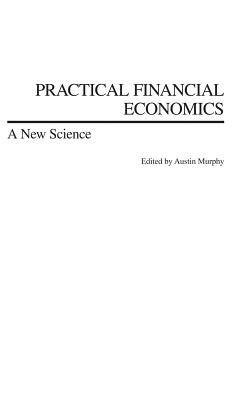
- Afhalen na 1 uur in een winkel met voorraad
- Gratis thuislevering in België vanaf € 30
- Ruim aanbod met 7 miljoen producten
- Afhalen na 1 uur in een winkel met voorraad
- Gratis thuislevering in België vanaf € 30
- Ruim aanbod met 7 miljoen producten
Omschrijving
The recent stock market bubble of the late 1990s and subsequent crash has made people more aware of the need to conduct practical financial analysis. Practical financial economics, i.e., the application of financial theory to practical financial analysis, is explained here with respect to a number of different topics, with a focus on valuation. Largely normative (instead of being theoretical, empirical, or descriptive, as most academic work seems to be), yet solidly grounded in theory (instead of being ad hoc, as much purely practitioner work seems to be), this book represents a collection of articles that are designed to have useful implications for both practitioners and academics.
Much of the book is focused on the concept of practical valuation of assets, such as individual stocks, the stock market, and foreign currencies. At least partially because one of the most important financial theories, the theory of efficient markets, makes practical valuation analysis virtually useless by assuming the intrinsic value of any asset is determined by its market price, the subject of practical valuation has been largely neglected in academic research. However, the efficient markets theory itself, being based on a general assumption that investors properly value securities by their trading, requires the very practical valuation that a belief in market efficiency makes useless. Within this context, it is not surprising that individual stocks, such as Enron's, and the entire stock market itself, can be effectively mispriced, as this book shows.Specificaties
Betrokkenen
- Auteur(s):
- Uitgeverij:
Inhoud
- Aantal bladzijden:
- 256
- Taal:
- Engels
Eigenschappen
- Productcode (EAN):
- 9781567205398
- Verschijningsdatum:
- 30/11/2003
- Uitvoering:
- Hardcover
- Formaat:
- Genaaid
- Afmetingen:
- 155 mm x 242 mm
- Gewicht:
- 530 g

Alleen bij Standaard Boekhandel
Beoordelingen
We publiceren alleen reviews die voldoen aan de voorwaarden voor reviews. Bekijk onze voorwaarden voor reviews.











